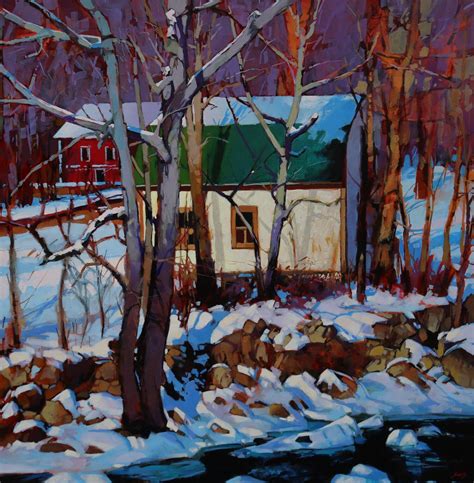A Quote by Anthony Storr
Part of what we admire about a painting or a piece of music is the order which the artist has imposed upon what would otherwise have appeared disconnected or chaotic.
Related Quotes
The edge of a painting is its frontier... where the artist negotiates his boundaries with the real world... where art begins and ends and where the eye enters and leaves the image. It determines, in an infinitely subtle number of ways, how you read a painting - which, unlike a book or a piece of music, has no pre-determined beginning or end.
Why was the painting made? What ideas of the artist can we sense? Can the personality and sensitivity of the artist be felt when studying the work? What is the artist telling us about his or her feelings about the subject? What response do I get from the message of the artist? Do I know the artist better because of the painting?
The artist has some internal experience that produces a poem, a painting, a piece of music. Spectators submit themselves to the work, which generates an inner experience for them. But historically it's a very new, not to mention vulgar, idea that the spectator's experience should be identical to, or even have anything to do with, the artist's. That idea comes from an over-industrialized society which has learned to distrust magic.
I always feel more comfortable in chaotic surroundings. I don't know why that is. I think order is dull. There is something about this kind of desire for order, particularly in Anglo Saxon cultures, that drive out this ability for the streets to become a really exotic, amorphous, chaotic, organic place where ideas can, basically, develop.
Making this movie as a period piece about a period that was very recent in people's minds. I was in Taiwan [during the 1970s], so I hope I did all right. Otherwise, it could be the biggest embarrassment of my life. Also, the story is not linear, it's patchy, like a cubist painting, and there is always the possibility it will not hold together, it will fall apart. The tone is part satire, part serious drama, part tragedy, all mixed together, and it has to hit an emotional core. That's also very scary.
There are absences, but there are also presences. It's about how painting can evolve its own abstractions. I didn't know the painting was going to be about that, but it has to have that journey; I have to learn something, I have to end up somewhere I didn't expect to be, otherwise, I don't think it's painting.
I'm always looking to find order within the chaos. And sometimes when my life gets fairly chaotic, I'll take a walk outside. I think about the order and the perfection of galaxies of planets in orbit and traveling around space and thinking how chaotic the wars and divorces and riots on our planet must look from outer space.



































